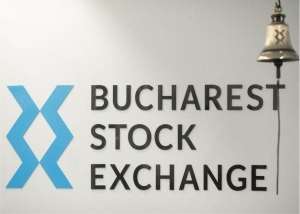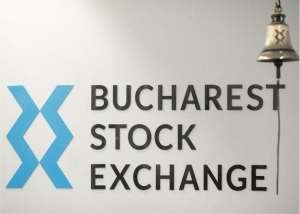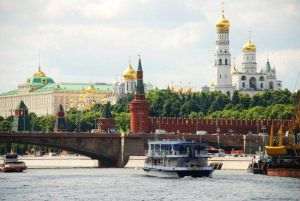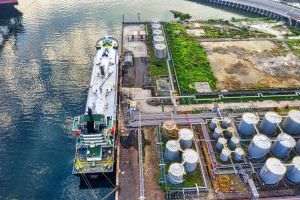Piaţa de capital croată este catalogată drept piaţă de frontieră atât în ierarhia MCSI cât şi a FTSE Russell, unde noi suntem piaţă emergentă secundară. Sunt clasificări oarecum aşteptate, ţinând cont de dimensiunea relativ redusă a Croaţiei şi de zona în care este situată unde, cu excepţia Poloniei, toate pieţele de capital sunt emergente sau de frontieră.
Dar, ponderea capitalizării companiilor locale în PIB este ridicată, anul trecut fiind de puţin sub 40%, cea mai mare din zona Europei Centrale şi de Sud-Est, conform datelor Băncii Mondiale. Spre comparaţie, evaluarea bursieră a companiilor din ţara noastră raportată la PIB era de 10,3%, iar în cazul Poloniei raportul se ridica la 29,9%.
• CROBEX - indicele principal al bursei este compus din 18 companii, ce oferă o imagine cuprinzătoare a economiei Croaţiei
CROBEX (CBX) este principalul indice al bursei din Croaţia, fiind în prezent compus din acţiunile a optsprezece companii. Mai mulţi emitenţi beneficiază de servicii de market-making care au menirea să sporească lichiditatea titlurilor, cel mai mare market-maker fiind brokerul InterKapital vrijednosni papiri.
Koncar, Podravka, Atlantic Gruppa şi Ericsson Nikola Tesla sunt cele patru companii ale căror titluri au o pondere de puţin peste 10% în indice. Koncar operează în industria echipamentelor electrice, Podravka este o companie din industria alimentară, de băuturi şi farma, una dintre cele mai mari din Sud-Estul Europei, Atlantic Gruppa este o multinaţională care se ocupă cu producţia, vânzarea şi distribuirea de bunuri destinate consumatorilor, iar Ericsson Nikola Tesla este companie de telecomunicaţii, asociată grupului suedez Ericcson.
Dar, emitentul ce are cea mai mare capitalizare de la Bursa din Zagreb, cu o evaluare de 4,4 miliarde de euro la finele lunii iunie, este compania de petrol, gaze şi carburanţi INA, însă tranzacţiile cu acţiunile sale sunt reduse în condiţiile în care grupul ungar MOL deţine puţin sub 50% din INA, iar guvernul croat aproape 45%.
Pe lângă indicii generali, la bursa in Zagreb există mai mulţi indici sectoriali, precum CROBEXkonstrukt, CROBEXturist, CROBEXtransport, CROBEXnutris.De asemenea, există indicele CROBEXTtr ce reflectă şi dividendele plătite de companiile ce fac parte din coşul de acţiuni principal al pieţei croate, dar şi indicele CROBEX10 ce este format din principalele zece companii de la bursa croată în funcţie de capitalizarea free-float-ului şi valoarea tranzacţiilor. Cea mai mare pondere în CROBEX10, de circa 20%, o are emitentul Hrvatski Telekom, companie deţinută majoritar de Deutsche Telekom, operatorul de telecomunicaţii fiind urmat de Podravka cu 18,5% şi Adris Gruppa, companie ce derulează afaceri în turism, industria alimentară şi asigurări, cu o greutate de 14,35% în CROBEX10.
CROBIS (CBS) este indicele pieţei de datorie guvernamentală, lansat în 2002, fiind în prezent compus din titluri cu douăsprezece scadenţe, toate peste optsprezece luni, ale Ministerului de Finanţe din Croaţia. Compoziţia indicelui se poate schimba trimestrial, iar rulajele cu titlurile inlcuse în coş sunt relativ reduse, existând uneori şi zile fără nicio tranzacţie. Valoarea instrumentelor de datorie este însă extrem de ridicată, puţin mai mare decât cea a companiilor listate.
• Piaţa "Progress" - un fel de Piaţa AeRO
Lansată în 2018, piaţa "Progress" reprezintă Segmentul Multilateral de Tranzacţionare al bursei din Zagreb, piaţă destinată companiilor mici şi medii ce caută capital pentru dezvoltare. În prezent, segmentul cuprinde patru companii, ultima fiind listată chiar luna trecută, iar celelalte trei în 2019. De menţionat că, alte două societăţi au fost listate în ultimii doi ani în această piaţă, dar ulterior au fost delistate.
Astfel, numărul de listări din această piaţă este extrem de redus prin comparaţie ce se întâmplă în piaţa AeRO, situaţie asemănătoare cu cea înregistrată în cazul valorilor de tranzacţionare, rulajele fiind cu mult sub cele de la noi.
După tranzacţiile cu acţiuni, obligaţiunile se află pe locul la doilea în topul valorii transferurilor la bursa din Zagreb. După efervescenţa de la lansarea din noiembrie anul trecut, tranzacţiile cu ETF-uri s-au temperat şi au înregistrat rulaje lunare de sub un milion de euro, în ultimele şapte luni.
• Bursa din Zagreb, deţinută de bănci; statul are o participaţie de 10%
Bursa din Zagreb este deţinută de mai multe bănci, între care unele străine precum Addiko Bank, Raiffeisen, OTP, BERD, etc., precum şi de companii de asigurări, multe fiind dintre cele care au pus bazele reînfiinţării bursei în 1991. Totodată, statul croat, printr-o agenţie financiară (FINA) ce oferă inclusiv mediere şi informaţii financiare, deţine 9,99% din operatorul bursei din Croaţia. Activităţile bursei, precum şi a întregii pieţe de capital din Cehia, sunt supravegheate de o agenţie guvernamentală (HANFA) similară cu Autoritatea de Supraveghere Financiară (ASF), care răspunde în faţa parlamentului croat.
• Numărul investitorilor străini a crescut considerabil de la aderarea ţării la Uniunea Europeană
Faţă de sfârşitul anului 2012, chiar înainte de aderarea Croaţiei la Uniunea Europeană, numărul conturilor investitorilor de retail străini a crescut cu 14,3%, iar numărul investitorilor instituţionali străini cu 70,5%. "Aderarea la UE a fost cu siguranţă un semnal foarte pozitiv pentru investitorii străini", spune Ivana Ga¾ić, preşedintele Consiliului de Administraţie al bursei croate.
Conform reprezentantului ZSE, investitorii de retail străini au deschis aproape 8.000 de conturi în perioada scursă de la finalul lui 2012 până în prezent, dar numai 7% dintre acestea sunt active. Persoanele fizice din Croaţia au aproximativ 863.000 de conturi, dar ponderea celor active este foarte redusă, de doar 4%. Investitorii persoane juridice croate au aproximativ 9.500 de conturi, din care 17% sunt conturi active, adică conturi prin care a fost realizată cel puţin o tranzacţie în ultimele şase luni.
• La fel ca în ţara noastră, cotaţiile şi interesul pentru bursă a urcat spectaculos înainte de criza din 2008
Preţurile acţiunilor şi interesul pentru bursă în general au crescut spectaculos în Croaţia, începând cu 2005-2006. În 2005 rulajele cu acţiuni urcaseră cu peste 80% faţă de anul anterior şi au avut loc 25 de listări. În 2006, valoarea tranzacţiilor atinsese aproape întregul rulaj din cei cinci ani anteriori ai bursei croate, iar cotaţiile crescuseră considerabil pe fondul intrărilor noi de lichidităţi. Interesul masiv pentru bursă din 2006 a fost generat inclusiv de listarea celei mai mari companii de petrol din Croaţia, INA, care a fost la vremea respectivă a treia companie croată listată dual, atât la Zagreb cât şi la Londra.
Indicele principal CROBEX a crescut cu 60,7% în 2006, iar capitalizarea acţiunilor s-a dublat comparativ cu anul anterior. Totodată, numărul de emisiuni corporative de obligaţiuni a crescut considerabil, în 2006.
Anul 2007 a marcat un nou record pentru Bursa din Zagreb, valoarea tranzacţionată urcând cu încă 57% comparativ cu recordul precedent, iar capitalizarea a crescut cu încă 78%, numărul de tranzacţii dublându-se. De asemenea, au existat multe IPO-uri, iar listarea companiilor Hrvatski Telekom şi Atlantic Group a impulsionat un raliu de încă 63,2% al indicelui principal CROBEX. La maximul din 2007, CROBEX înregistra o valoare de 5.239 de puncte. În prezent, indicele este cotat în preajma nivelului de 1.950 de puncte.
A urmat anul 2008, extrem de dificil pentru toate pieţele şi pentru toţi participanţii la bursă. Rulajele au coborât cu circa o treime, iar CROBEX a înregistrat o corecţie de 67%. Acţionarii Bursei de Valori din Zagreb au operat în 2008 o infuzie de capital de 40 de milioane de kuna croate.
În anul 2010 s-a înregistrat o anumită revenire a rulajelor, capitalizării şi indicilor, fiind implementate şi primele soluţii de market-making. În 2012 au început tranzacţiile cu produse structurate, la care s-a renunţat ulterior.
În prezent, Bursa din Zagreb se consideră un integrator de burse, după ce în 2015 a realizat o infuzie de capital şi a cumpărat în proporţie de 100% Bursa de Valori din Ljubljana (Slovenia) şi deţine 5,3% din Bursa de Valori din Macedonia de Nord. Din 2014, Zagreb Stock Exchange derulează proiectul de integrare regională SEE LINK, în parteneriat cu bursa bulgară şi macedoneană. Pentru acest proiect a fost înfiinţată o companie comună, fiind semnat un acord de distribuire de date cu Bursa din Viena. Începând cu 2016, operatorul pieţei croate a devenit companie listată la Bursa de Valori din Zagreb.
-------------------------
• Croatia - a market slightly smaller than its Romanian peer
The Croatian stock market is labeled as a frontier market both in the MCSI and the FTSE Russell rankings, which instead rank the Bucharest Stock Exchange as a secondary emerging market. These rankings were somewhat expected, given the relatively low size of Croatia and the area it is located in, where, with the exception of Poland, all the stock exchanges are ranked as emerging or frontier.
But the weight of the capitalization of the local companies in the GDP is high: last year it was slightly below 40%, the biggest in the area of Central and South-Eastern Europe, according to data from the World Bank. For comparison, the stock market valuation of Romanian companies in relation to the GDP was 10.3%, and in Poland's case the ratio stood at 29.9%.
• CROBEX - the main index of the stock exchange - which is made up of 18 companies, provides a comprehensive perception of Croatia's economy
CROBEX (CBX) is the main index of the Croatian stock exchange, currently made up of the stocks of eighteen companies. Several issuers benefit from market-making services which are meant to increase the stocks' liquidity. The biggest market-maker is brokerage InterKapital vrijednosni papiri.
Koncar, Podravka, Atlantic Gruppa and Ericsson Nikola Tesla are four companies whose stocks account for slightly 10% of the index. Koncar operates in the electric equipment industry, Podravka is a company in the food industry, drinks and pharma, one of the biggest in South-Eastern Europe, Atlantic Gruppa is a multinational that produces, sells and distributes consumer goods, and Ericsson Nikola Tesla is a telecommunication company, associated to Swedish group Ericsson.
But the issuer with the biggest capitalization on the Zagreb stock exchange, with a valuation of 4.4 billion Euros at the end of June, is oil, gas and fuel company INA, but trading in its stock is low, as Hungarian group MOL holds a little below 50% of INA, and the Croatian government almost 45%.
Aside from the general indices, there are also several sectoral indices on the Zagreb exchange, such as CROBEXkonstrukt, CROBEXturist, CROBEXtransport, CROBEXnutris. There is also the CROBEXTtr index which takes into account the dividends paid out by the companies which are part of the Croatian stock exchange stock basket, as well as the CROBEX10 index which is made up of the ten largest companies from the Croatian stock exchange, based on their free-float and turnover. The biggest weight in CROBEX10, of about 20%, is held by Hrvatski Telekom, a company in which Deutsche Telekom holds the majority stake, followed by Podravka with 18.5% and Adris Gruppa, a company which controls businesses in travel, the food industry and insurance, with a weight of 14.35% in the CROBEX10 index.
CROBIS (CBS) is the index of the government debt market, launched in 2002, currently made up of securities with 12 maturities, all over eighteen months, of the Croatian Finance Ministry. The structure of the index can change quarterly, and the turnovers with the instruments included in the basket are relatively low, as sometimes there are days where no trades take place. The valuation of the debt instruments is however extremely high, a little higher than that of the listed companies.
• The "Progress" market - similar to the AeRO market
Launched in 2018, the "Progress" market represents the Multilateral Trading Segment of the Zagreb stock exchange, dedicated to small and medium companies which seek capital for development. The segment currently has four companies, with the latest being listed just last month, while the other three were listed in 2019. It needs to be mentioned that two other companies were listed in the last two years on that market, but were subsequently delisted.
Thus, the number of listings on this market is extremely low compared to the state of things on the AeRO market, a situation mimicked by turnover, which is way below that in Bucharest.
After stock trading, bonds are ranked second in terms of turnover on the Zagreb stock exchange. After the enthusiasm in November last year, the ETF trading slowed down and saw monthly turnover below 1 million Euros in the last seven months.
• The Zagreb stock exchange, owned by banks; the government has a stake of 10%
The Zagreb stock exchange is owned by several banks, some of them foreign, such as Addiko Bank, Raiffeisen, OTP, BERD, etc., as well as insurance companies, many of them being those that laid the foundation for the rebirth of the stock market in 1991. Also, the Croatian government, through a financial agency (FINA) which offers mediation and financial information, owns 9.99% of the operator of the Croatian stock exchange. The activities of the exchange, as well as that of the whole Czech stock market, are overseen by a government agency (HANFA) similar to the Romanian Financial Oversight Authority (ASF), which answers to the Croatian parliament.
• Number of foreign investors has increased considerably from the country's accession to the European Union
Compared to the end of 2012, even before Croatia joined the European Union, the number of foreign retail investor accounts increased 14.3%, and the number of foreign institutional investors by 70.5%. "The accession to the EU has definitely sent a very positive signal to foreign investors", says Ivana Ga¾ić, the chairman of the Board of Directors of the Croatian stock exchange.
According to her, foreign retail investors have opened up about 8,000 accounts since the end of 2012, but only 7% of them are active. Individuals in Croatia have approximately 863,000 accounts, but the weight of those assets is very low, (just 4%). Croatian legal entity investors have approximately 9500 accounts, of which 17% are active, meaning they have made at least one trade in the last six months.
• Just like in Romania, stock prices and interest in the stock market rose spectacularly prior to the 2008 crisis
Stock prices and interest in the stock market in general rose spectacularly in Croatia starting in 2005-2006. In 2005 stock turnover had risen over 80% over the previous year and 25 new listings occurred. In 2006, turnover had nearly reached an amount equal to the turnover of the previous five years on the Croatian stock exchange, and stock prices had risen considerably amid new liquidity inputs. The massive interest in the stock exchange since 2006 was also caused by the listing of the biggest oil company in Croatia, INA, which at the time was the third company with a dual listing (Zagreb and London).
The CROBEX main index rose 60.7% in 2006, and the stock capitalization nearly doubled compared to the previous year. The number of corporate bonds also increased considerably in 2006.
2007 marked a new record for the Zagreb stock exchange, as turnover rose another 57% compared to the previous record, and capitalization rose another 78%, while the number of trades doubled. Also, many IPOs were performed, and the listing of Hrvatski Telekom and Atlantic Group drove an additional 63.2% rally of the CROBEX main index. At its 2007 peak, CROBEX had an amount of 5,239 points. Currently, the index hovers near 1950 points.
Then came the year 2008, which was extremely difficult for all the markets and for every market participant. Turnover fell by about one third, and CROBEX posted a correction of 67%. The shareholders of the Zagreb stock exchange injected 40 million Croatian kuna in 2008.
In 2010 a certain recovery in turnover, capitalization and indexes was seen, with the first market-making solutions being implemented. In 2012 trading in structured products began, which was later abandoned.
The Zagreb stock exchange currently views itself as an exchange integrator, after in 2015 it bought 100% of the Ljubljana stock exchange (Slovenia) and owns 5.3% of the Northern Macedonian Stock Exchange. Since 2014, the Zagreb Stock Exchange has been conducting the SEE LINK regional integration project, in partnership with the Bulgarian and Macedonian Stock Exchange. A joint partnership has been created for this project, with a data distribution agreement with the Vienna Stock Exchange. Starting with 2016, the operator of the Croatian stock exchange became a listed company on the Zagreb stock exchange.

























































